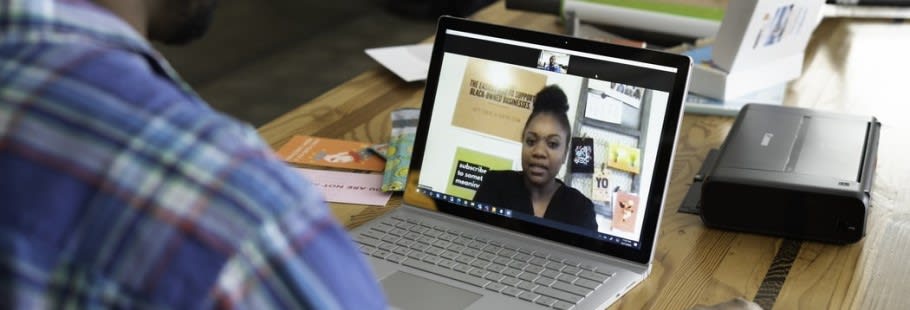What I Learnt From My Online PhD Interview
My interview experience was somewhat unusual and something I had never thought would happen. I was backpacking around Australia on my gap year, having applied for three different PhDs just before I left. I didn’t reach the interview stage for the first application but the second and third I did, and I was subsequently offered my PhD with the third application (third time lucky I guess!).
Both of my interviews took place while I was on my travels, staying in hostels and in a completely different time zone. Little did I know when I had my video interview in an Australian hostel that the likes of Zoom would soon become the norm around the world!
I’m sharing my experience with the third interview in particular because I think there is a lot of pressure on how to present yourself in interviews and, while I think certain aspects of the way you present yourself are important, some aren’t as big as they make out… and you can make a good first impression even if you’re not in the ‘ideal’ situation you think you should be.
My interview was at 11pm while I was staying in a hostel in Brisbane. As you can imagine, hostels can be vibrant places with backpackers mingling and partying late into the evening, with very dodgy Wi-Fi! So this was hardly the place to be having an interview for something that could change the next step in my career/life… but I still managed to have a successful one.
I’d learnt so much from the previous interview. Not only is it important to look keen, know the content, research the supervisor backgrounds, and have your questions ready, but I also found it was valuable to understand exactly what the PhD wanted in terms of type of research, and to be able to show how I’d go about that.
My interview had a very welcoming and comfortable atmosphere, despite some connectivity issues at the start which delayed our meeting. You can only imagine the extra stress that I put myself under after that. Once the meeting started there were introductions from the supervisors (of which there was three) and then I introduced myself. I said a little about my general background, my academic background and what I was up to at that time (traveling the world!).
The somewhat unusual and informal background that I presented myself in for the interview helped me to relax a bit more. As a result of this, it felt much more like a conversation where both parties were talking, discussing, and asking questions to find out if this was going to be a good fit (of course, the supervisors have the final say on that!). I think that as I became more relaxed, I was able to show more of my true nature, laugh a bit, expand on my points rather than just get to the end of my sentences, and enjoy the process.
After introductions, the interview then proceeded with questions about my experiences that would highlight different skills needed during the PhD. I think the importance of these questions is more to do with showcasing your ability to reflect on your experiences rather than judging the ins and outs of your strengths and weaknesses. After all, it’s a good idea to acknowledge any weakness and suggest how you may improve, rather than say “I don’t have any weaknesses”.
Another interesting question to think about is why you are doing the PhD. In my case, I didn’t know where I wanted to go with it, so I didn’t have what I thought was the ‘ideal’ answer. I did, however, know that I enjoyed the process of research and writing up, and I was ready to become a more independent researcher with this passion. My point here is that it’s okay if you don’t know the end goal right now.
Based on my experience, here are my tips:
- Prepare – This is far more important than where you are and what you look like through the computer. Look into the backgrounds of your prospective supervisors, what are their genuine interests? What is the PhD asking of you? What have you done to show these skills or what questions could you think of to find out if there will be opportunities to learn these required skills?
- Think about your questions and don’t ask one for the sake of it! – What opportunities are there for training? What opportunities are there to meet other research students at the university (potentially a very important question during these times of working from home)? Think about what you would like in a supervisor and ask them questions to answer these for yourself. Perhaps you could ask how often they meet with PhD students, as well as how many supervisees they currently have.
- Check the platform your interview is on beforehand so that you know you have access to it and, of course, choose as reliable spot as you can for the Wi-Fi.
- Find a space where you won’t be distracted – Even if it doesn’t have a completely plain or photogenic background, your priority should be to find a space where you can commit and focus on the conversation.
While parts of the world are beginning to return to normal after the pandemic, it seems like online interviews are here to stay – I hope my tips have been useful and good luck if you have an upcoming PhD interview of your own!
Our postgrad newsletter shares courses, funding news, stories and advice

 Continue with Facebook
Continue with Facebook





